Issawiya, occupied East Jerusalem, 11 Muharram 1438/12 October 2016 (MINA) – As Israel imposed a siege on East Jerusalem, sealing off entire neighbourhoods, Issawiya emerged on Wednesday morning from another violent night of clashes and arrests – broken and battered, but unbowed, according to residents.
During the night, Israeli security forces violently clamped down on Palestinians protesting after at least seven demonstrators were arrested, assaulted, and taken away for interrogation.
Residents told Al Jazeera that the East Jerusalem neighbourhood has paid a heavy price for “repeatedly defying Israel’s occupation”.
“Hundreds of youths [from Issawiya] have been arrested, 21 people have been shot, including the extrajudicial killing of Fadi Alloun,” said store owner Tarek Saad, 45, who was too afraid to give his real name or have his picture taken for security concerns
Also Read: Israel Can Resume Gaza Aggression if Hamas Doesn’t Disarm: US
“Homes have been trashed, windows broken, tear gas fired indiscriminately, and residents assaulted on a daily basis. Children are afraid to go to school. They hang around in the streets, and their grades have dropped,” Saad told Al Jazeera.
On Wednesday, Israel set up checkpoints at exits of Palestinian neighbourhoods in occupied East Jerusalem after the government approved tough “security” measures to enforce an iron-fist policy, incorporating collective punishment against Palestinians in a bid to stop their resistance.
I’m scared and worried of being attacked, not only in the settlement but on the way to and from work. But my children have to eat, I don’t have a choice.
Turned into war zone
Residents of Jerusalem’s old town told Al Jazeera the area has turned into “a war zone”.
Also Read: UN Warns Gaza Humanitarian Situation ‘Extremely Dire’ as Winter Approaches
Hundreds of extra Israeli soldiers and police have flooded East and West Jerusalem, to supplement the thousands already there, sealing off Palestinian neighbourhoods from Jewish neighbourhoods in West Jerusalem with ubiquitous checkpoints and roadblocks.
According to an Israeli police spokesman, 300 soldiers are involved in security measures under police command in Jerusalem. This is the first time that Israeli soldiers are being employed in Jerusalem to carry out security operations alongside Israeli police.
Al Jazeera witnessed police and soldiers, armed with automatic weapons, patrolling every light-rail station and many bus stations in areas bordering East and West Jerusalem.
West Jerusalem is mostly devoid of Palestinians, even of those who were employed in Israeli businesses. The few that venture into the Jewish side are stopped, searched, and questioned by Israeli security forces at gunpoint.
Also Read: Israeli Airstrikes Kill 25 Gazans, Injure 77 in Ceasefire Violation
Israel’s siege has had its toll on the economic conditions of East Jerusalem residents, who continue to struggle to make ends meet. Saad, a father of five children, showed Al Jazeera a long list of residents who owe him money for goods they’ve purchased at his shop but have been unable to pay as Palestinian unemployment climbs and business drops.
“My business has dropped dramatically in the last few months, but I can’t refuse people who are struggling to survive and feed their children.”
Mazen Khamis*, 36, used to work for Jewish employers for 15 years at a sweets shop in the East Jerusalem suburb of Bak’a (though the Israelis have changed the neighbourhood’s name to Talpiot).
“My employers told me I had to leave two weeks ago when the violence began. They said I can come back when the problems are over, but I’m afraid to work in Jewish areas now because Palestinians are being targeted in attacks [by settlers],” Khamis, a father of three children, aged two to seven, told Al Jazeera.
Also Read: Israeli Occupation Forces Detain Over 200 Palestinians in Beit Ummar Raids
A number of Palestinian businesses in Jerusalem’s Old City have been forced to close because their owners refused to intervene when Israeli settlers were stabbed or because they live outside Jerusalem.
As the situation continues to deteriorate, human rights organisations are warning that Issawiya’s predicament is going to spread to the rest of East Jerusalem.
“What is happening in Issawiya is a microcosm of what is going to happen to the rest of East Jerusalem,” Tahseen Elayyan of the Al Haq rights group in Ramallah told Al Jazeera.
“Israel is taking advantage of the current climate to pressure Palestinians to leave Jerusalem as part of its Judaisation policy,” Elayyan explained.
Israel’s strategy
Also Read: Israel Announces Land Seizure of 4,600 Dunums Near Nablus in West Bank
Besides the clamp down on East Jerusalem, Israel’s strategy to suppress Palestinians protests includes blowing up the homes of Palestinians accused of attacking Israelis, revoking their and their family’s Jerusalem residency rights, and easing gun restrictions for Jews.
The Israeli authorities have also announced that they will refuse to return the bodies of Palestinians killed by Israeli forces to their families for burial.
“Not only will they not enjoy rights, we’ll exact the full price from them. Anyone who tries to harm us, his arm will be cut off,” Israeli Prime Minister Benjamin Netanyahu threatened.
However, Israeli rights group B’Tselem has warned that the Israeli government’s response to recent escalation in the area is “the very inverse of what ought to be done”, in realistic efforts to stop the violence ravaging East Jerusalem.
Also Read: Israel Welcomes UNSC Gaza Resolution, Opposition Criticizes Deal
The Israeli media reported on Wednesday afternoon that Israeli settlements were closing their gates to and expelling Palestinian employees.
“I’m scared and worried of being attacked – not only in the settlement, but on the way to and from work,” said Saleem Hassan*, 55, a father of four children who has been working in the Israeli settlement of Modiin Illit, for 20 years. “But my children have to eat, I don’t have a choice.” (T/R07/R01)
Mi’raj Islamic News Agency (MINA)
Also Read: Hamas Rejects International Forces in Gaza





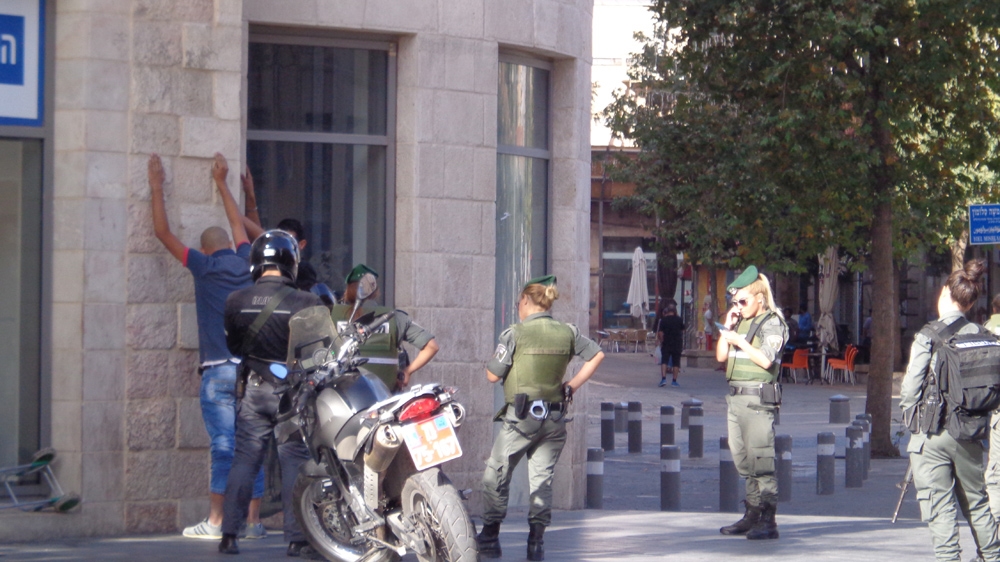



![Israeli tanks and APC’s gather by the Israeli – Lebanese border. Amid Israel’s escalating campaign against Hezbollah in Lebanon on September 30, 2024. [Erik Marmor/Getty Images]](https://en.minanews.net/wp-content/uploads/2024/10/IMG_20241001_203226-300x197.jpg)






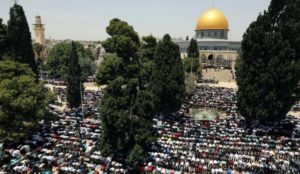
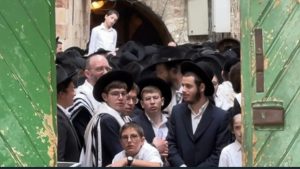

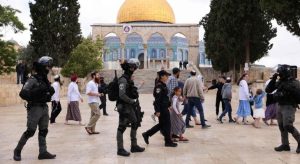
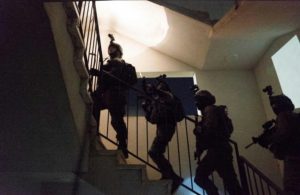












 Mina Indonesia
Mina Indonesia Mina Arabic
Mina Arabic